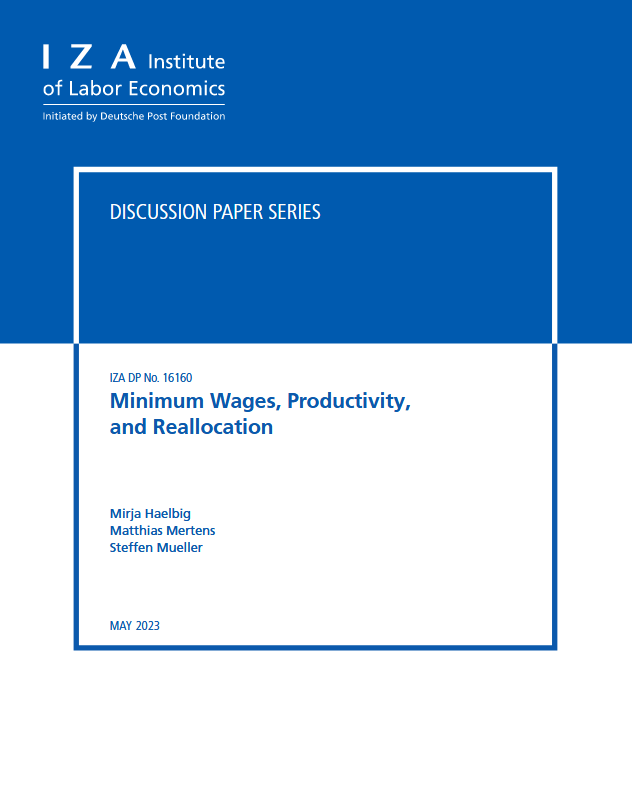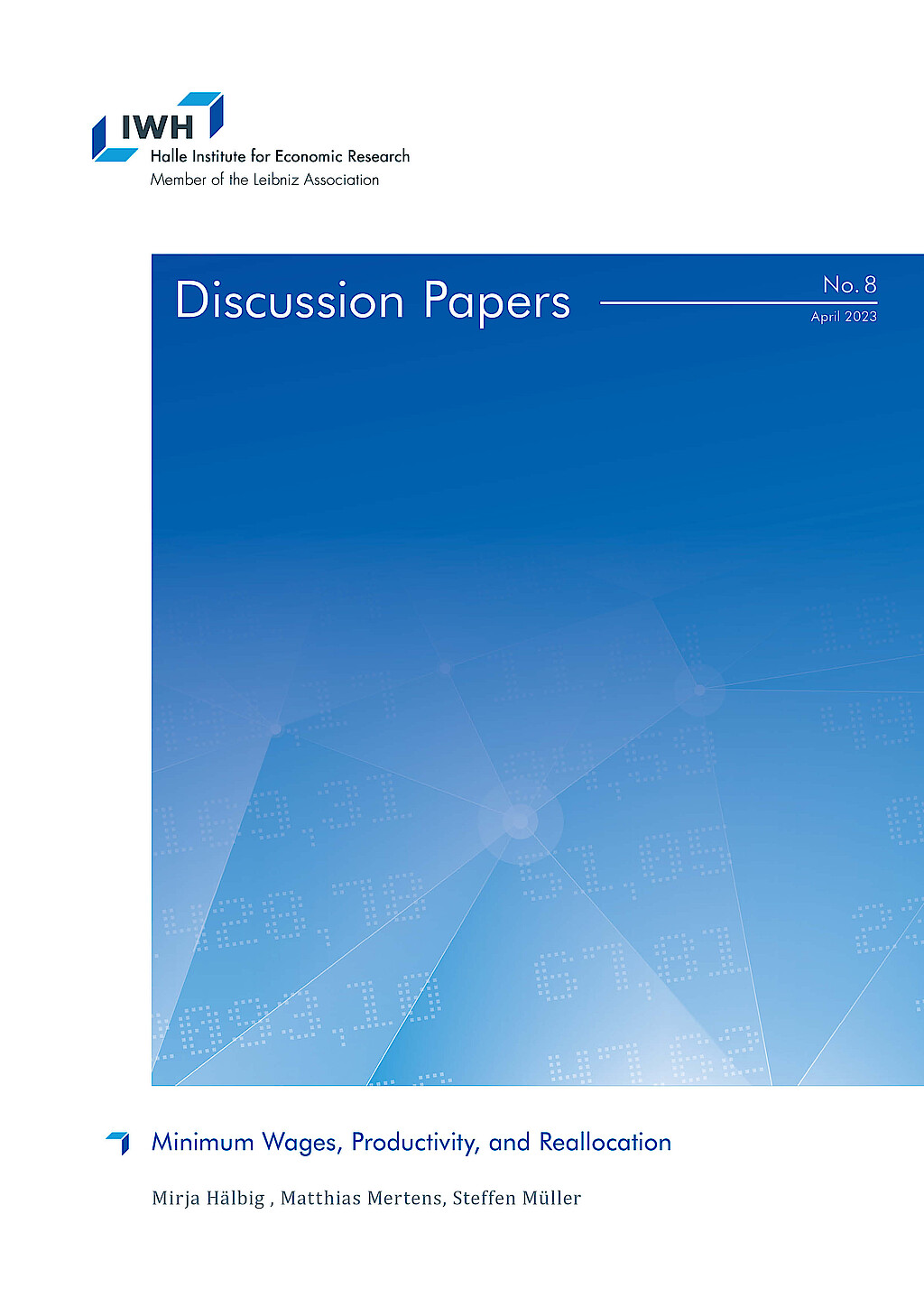Mirja Hälbig

Current Position
since 1/25
Economist at the Centre for Business and Productivity Dynamics (IWH-CBPD)
Halle Institute for Economic Research (IWH) – Member of the Leibniz Association
Research Interests
- empirical labour economics
- empirical productivity research
Mirja Hälbig joined the Department of Structural Change and Productivity as a doctoral student in June 2019 and the Centre for Business and Productivity Dynamics (IWH-CBPD) in January 2025. Her research focuses on minimum wage and productivity.
Mirja Hälbig received her bachelor's degrees from University of Marburg and her master's degree from Leipzig University.






